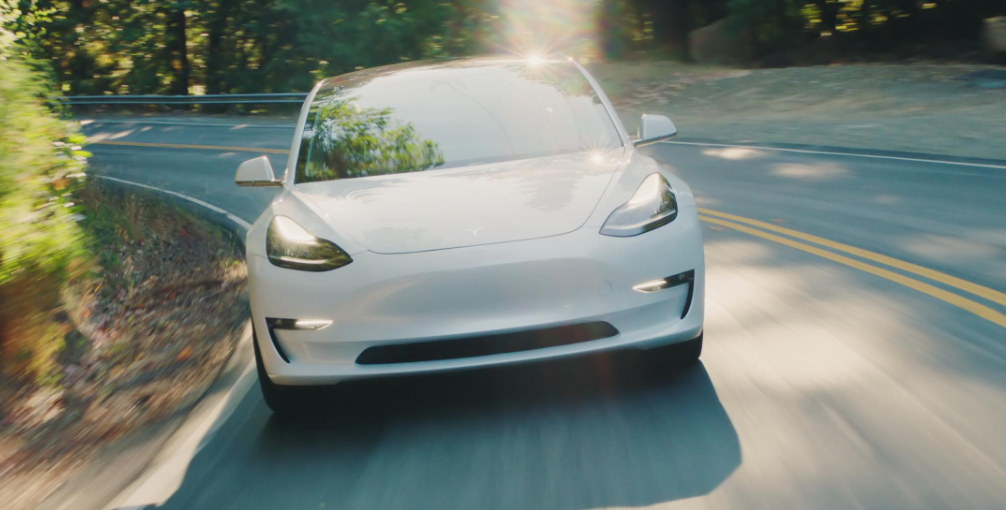Whitney Tilson’s email to investors discussing Elon Musk’s Solar Deal Has Become the Top Threat to Tesla’s Future; Tesla Lost Market Share In Q3; Tesla’s Model 3 Success Hits BMW the Hardest; Musk podcast; Why the Survival and Dominance of Car Manufacturers is Far from Certain.
1) Yet another in-depth article (Elon Musk’s Solar Deal Has Become the Top Threat to Tesla’s Future; full text below) – with a few new revelations – exposing the massive fraud on investors Musk engineered in the SolarCity acquisition.
Q3 2019 hedge fund letters, conferences and more
2) Anton Wahlman’s latest: Tesla Lost Market Share In Q3 To BMW, Mercedes, Audi And Volvo. Excerpt:
3) Here’s the fourth and final part of Bloomberg’s survey of 5,000 Model 3 owners: Tesla’s Model 3 Success Hits BMW the Hardest.
4) My analyst Kevin sent me this 36-minute video of a podcast Musk did on: Elon Musk: Neuralink, AI, Autopilot, and the Pale Blue Dot | Artificial Intelligence (AI) Podcast. Transcript below.
5) My friend Vitaliy Katzenelson with part six of his 11-part series: Why the Survival and Dominance of Car Manufacturers is Far from Certain.
Elon Musk On Neuralink, AI, Autopilot, And The Pale Blue Dot - Transcript
Lex Fridman: The following is a conversation with Elon Musk, Part II. The second time we spoke on the podcast with parallels, if not in quality, then in outfit to the, objectively speaking, greatest sequel of all time, Godfather, part two. As many people know, Elon Musk is a leader of Tesla, SpaceX, Neuralink, and the Boring Company. What may be less known is that he's a worldclass engineer and designer, constantly emphasizing first principles thinking in taking on big engineering problems that many before him have considered impossible.
Lex Fridman: 00:37 As scientists and engineers, most of us don't question the way things are done. We simply follow the momentum of the crowd. But revolutionary ideas that changed the world on the small and large scales happen when you return to the fundamentals and ask: "Is there a better way?" This conversation focuses on the incredible engineering and innovation done in brain computer interfaces in Neuralink.
Lex Fridman: 01:04 This work promises to help treat neurobiological diseases, to help us further understand the connection between the individual neuron to the high-level function of the human brain.
And finally, to one day expand the capacity of the brain through two-way communication, with computational devices, the internet and artificial intelligence systems. This is the Artificial Intelligence podcast. If you enjoy it, subscribe on YouTube, Apple Podcasts, Spotify, support it on the page you're on, or
simply connect with me on Twitter, Lex Fridman, spelled F-R-I-D-M-A-N.
Lex Fridman: 01:40 And now as an anonymous YouTube commenter referred to our previous conversation as the quote "historical first video of two robots conversing without supervision," here's the second time, the second conversation with Elon Musk.
Lex Fridman: 01:57 Let's start with an easy question about consciousness. In your view, is consciousness something that's unique to humans or is it something that permeates all matter? Almost like a fundamental force of physics?
Elon Musk: 02:10 I don't think consciousness permeates all matter.
Lex Fridman: 02:13 Panpsychics believe that. There's a philosophical ...
Elon Musk: 02:16 How would you tell?
Lex Fridman: 02:19 That's true? That's a good point.
Elon Musk: 02:21 I believe in scientific method. Don't want to blow your mind or anything, but the scientific method is if you cannot test the hypothes is, then you cannot reach meaningful conclusion that it is true.
Lex Fridman: 02:30 Do you think consciousness, understanding consciousness is within the reach of science of the scientific method?
Elon Musk: 02:37 We can dramatically improve our understanding of consciousness. I'd be hard pressed to say that we understand anything with complete accuracy, but can we dramatically improve our understanding of consciousness? I believe the answer is yes.
Lex Fridman: 02:53 Does an AI system, in your view have to have consciousness in order to achieve human level or super human level intelligence? Does it need to have some of these human qualities like consciousness, maybe a body, maybe a fear of mortality, capacity to love, those kinds of silly human things?
Elon Musk: 03:16 It's different. There's this scientific method which I very much believe in where something is true to the degree that it is testably so. And otherwise you're really just talking about preferences or untestable beliefs or that kind of thing. So it ends up being somewhat of a semantic question where we are conflating a lot of things with the word intelligence. If we parse them out and say, are we headed towards the future where an AI will be able to out-think us in every way, then the answer is unequivocally yes.
Lex Fridman: 04:05 In order for an AI system that needs to out-think us in every way, it also needs to have a capacity to have consciousness, self-awareness and understand ...
Elon Musk: 04:16 It will be self-aware, yes. That's different from consciousness. I mean to me in terms of what consciousness feels like, it feels like consciousness is in a different dimension. But this could be just an illusion. If you damage your brain in some way physically, you damage your consciousness, which implies that consciousness is a physical phenomenon in my view.
Elon Musk: 04:44 The thing is that I think are really quite likely is that digital intelligence will be able to out-think us in every way. And it will suddenly be able to simulate what we consider consciousness. So to the degree that you would not be able to tell the difference.
See the full transcript here.






